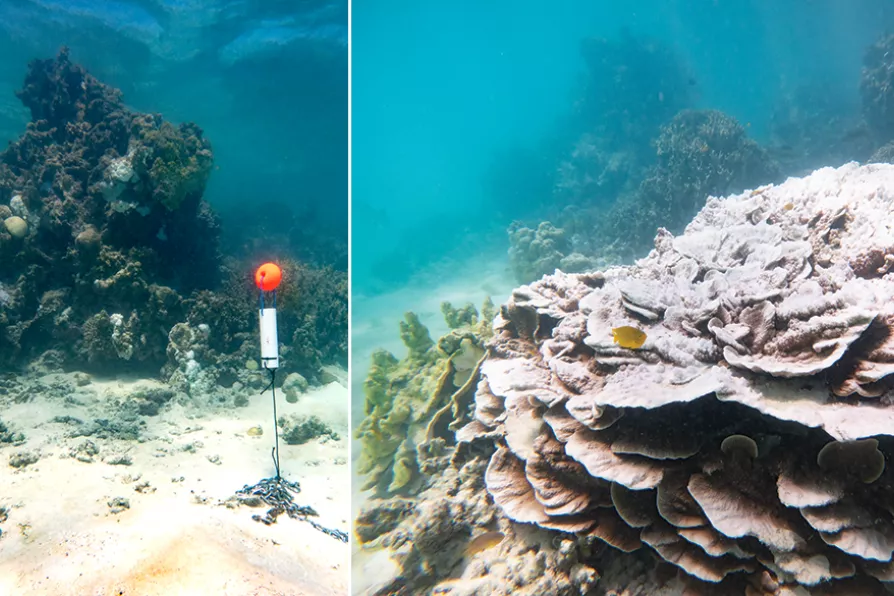As tens of thousands return to the streets for the first national Palestine march of 2026, this movement refuses to be sidelined or silenced, says PETER LEARY

 ARMAGEDON: (L to R) Bleached plate coral at One Tree Island, Great Barrier Reef; Temperature logger in situ, both pics April 2024
[John Turnbull/flickr/CC]
ARMAGEDON: (L to R) Bleached plate coral at One Tree Island, Great Barrier Reef; Temperature logger in situ, both pics April 2024
[John Turnbull/flickr/CC]
CORALS are symbiotic, meaning they depend on a relationship with another biological organism. Microbes called zooxanthellae live inside the structures corals build out of calcium carbonate.
The microbes photosynthesise, providing corals with energy and nutrients. They also give corals their characteristic vivid colours. However, when corals are placed under stress, they will expel their resident zooxanthellae, turning the coral white.
By far the most serious cause of this stress-related bleaching is warming water. Corals have a typical temperature range they are happy with, and when water temperatures exceed that — particularly for long periods — they bleach.
The bleaching is not merely an aesthetic concern: the expulsion of the zooxanthellae means the corals have lost their main source of food. They may not initially die but they are vulnerable, susceptible to disease and starvation. Longer periods of bleaching and they will die.
When the water temperature becomes too hot, a colourful reef can be transformed into a graveyard. The tropical paradise disappears; as corals die and turn white, a brown algal sludge spreads.














